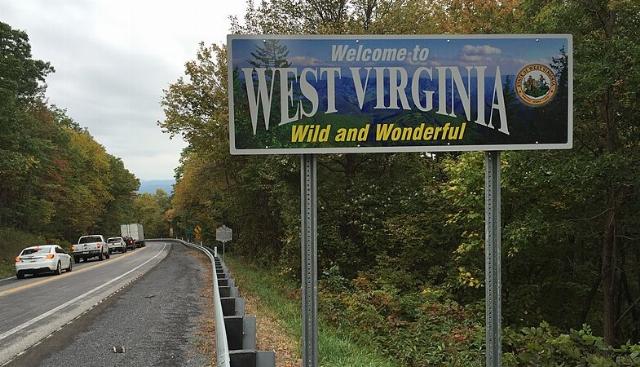A second Republican senator in West Virginia?
In the campaign to replace retiring West Virginia Democrat-turned-independent senator Joe Manchin, the state’s governor, Jim Justice, is in the lead by more than 30 points over the Democrat, Glenn Elliot. Unless the unforeseen happens, Justice will add one senator to Washington who knows that freedom is more than a right to kill the unborn. From the polls, it looks as though West Virginia is coming to a new realization of how much more freedom is than that.
Justice’s campaign headquarters says, “Jim Justice will fight the radical left’s efforts to have a complete government takeover of health care and have bureaucrats between patients and their doctors.”
On the other hand, Elliott, a self-professed “transformation” candidate, greets visitors to his campaign website with a pro-abortion claim of running on a “freedom” platform. The same page then advocates for further government bureaucratic tie-ups in medicine.
Turning to the state’s race for governor, Patrick Morrissey leads both the staunchly anti-Trump Manchin and the Biden-supporting Democrat challenger, Steve Williams.
Morrissey makes clear his aim to take West Virginia in the direction of citizen liberty, leading with the statement that he
spearheaded America’s largest win against the deep administrative state in decades (WV v. EPA), a pivotal case for our state because it helps protect energy jobs and limits the ability of federal agencies to issue regulations without clear statements from Congress.
That is a big statement indeed, one that means a lot for the hardworking people of West Virginia. Morrissey won a resounding victory for the right of the people to work in energy-producing industries without being stripped and shaken down by government agencies.
West Virginia’s history includes a significant role for mining towns, where private affairs (the mining company and the miners’ personal or domestic lives) had the potential to be more intertwined with civic government affairs (the towns set up largely for miners by the mining companies). In fact, the state split from the once larger and unified state of “Virginia” in 1863 in order to pursue — and keep the tax revenues from — its own economic fortunes of a largely mineral nature.
In West Virginia, gaining work; keeping it; and surviving dangerous mining, logging, and energy work in one piece, in remote ranges with sparse medical care, may have had a way of taking popular precedence over concerns about governments’ overstepping individual rights. Private entrepreneurship in mining start-ups faces physical, geological, and economic barriers.
Understandably, many people in West Virginia came to consider it more feasible to raise their standards of living through collective bargaining than by pushing for a climate primed for personal liberty in their individual ventures.
Further, with mountains partially isolating it, West Virginia remained culturally traditional and conservative. Its 73% Christian faith is fifth in the nation, and the state didn’t have quite the number of hedonism-pushing operatives going against Christian morality in schools, local media, libraries, and local politics that many other states have dealt with for most of a century. West Virginians have not intensely felt themselves in a “culture war” quite the way other states have, and 95% of West Virginian K–12 students, the third highest in the country, go to public rather than private schools. “Life is old here,” as the song goes.
Strong in the energy economy, trusting somewhat in government, faithful, and insulated to a degree, 21st-century West Virginians, like Americans from all other states, have increasingly recognized their interest in protecting their bodily autonomy in health choices. The man in the lead to take Jim Justice’s job as governor, Patrick Morrissey, came at odds with the state government’s mask mandates and statements barring the unvaccinated and unmasked from indoor venues.
Donald Trump, likely aware that the health freedom community has drifted away from him for his pandemic policy, spoke last week on the rise in America of allergies, autism, and other children’s conditions (along with infertility) and said his administration will investigate Big Pharma and food industry groups and their revolving doors with government agencies.
Only one “red”/Trump-electing state remains on the shrinking, short list of U.S. states with no religious exemption, and that is West Virginia. It joins New York, California, Connecticut, and New Jersey in the denial of religious exemptions to families. (Conservative Mississippi, a state whose economy, like West Virginia’s, has historically been slower-growing, left that list in 2021 by passing religious exemptions into law. The legislation and litigation that led to Mississippi’s religious exemption were chronicled in the documentary The Smooth Stone, directed by Claire Dooley.)
West Virginia’s House of Representatives passed a religious exemption in February. The state Senate and governor’s office have yet to weigh in or sign the religious exemption into law.
With Jim Justice expected to enter the Senate and Patrick Morrissey making headway to become governor; with WV v. EPA helping cut the EPA back from overstepping its real pollution prevention duties by interfering in healthy, plant-nourishing carbon dioxide; and with Loper Bright and other cases giving the people a chance in legal fights against the leviathan, sunrise may be soon in West Virginia, capable of setting a rock-solid trend toward a freer future America.

Image: Famartin via Wikimedia Commons, CC BY-SA 4.0 (cropped).





